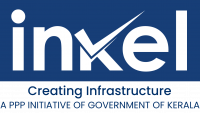
In the fast-paced world of engineering, procurement, and construction (EPC), delivering projects on time, within budget, and to the highest quality standards is more challenging than ever. With increasing complexities and expectations, Engineering Procurement Construction Providers in India need to constantly innovate their processes to stay competitive.
This is where Lean Construction comes in—a methodology that is reshaping how projects are executed by focusing on efficiency, collaboration, and continuous improvement. Inkel, a premier EPC service provider in Kerala , is at the forefront of this revolution, integrating Lean Construction to optimize project delivery and outcomes. Through Lean, Inkel is not just constructing buildings but building smarter, faster, and more effectively.
Let us understand and see how Inkel uses Lean Construction principles to achieve remarkable results across diverse industries, and why this approach is transforming the future of project execution.
Lean Construction is more than just a buzzword; it is a mindset that originated from the principles of lean manufacturing, specifically pioneered by Toyota in the automotive industry. At its core, Lean focuses on eliminating waste, maximizing value, and continuously improving workflows.
In construction, these principles translate to improved productivity, better communication, and more effective use of resources. Lean Construction, therefore, emphasizes delivering value to the client while reducing inefficiencies that often plague traditional construction methods—like wasted time, unused materials, and communication breakdowns.
For Inkel, the best EPC service provider in Kerala, Lean Construction is not just a strategy but a commitment to excellence. By embracing Lean principles, Inkel aims to create a balance where every project runs smoothly, minimizing delays and rework, and maximizing quality and client satisfaction.
Inkel has strategically integrated several key Lean Construction tools into its project delivery model, ensuring that each project benefits from this innovative approach. Let’s take a closer look at some of the methods Inkel uses to streamline processes and boost efficiency:
At the start of any project, identifying and understanding the flow of work is critical. Value Stream Mapping (VSM) is a Lean tool that Inkel uses to visualize every step in a project’s workflow, from planning and procurement to execution and completion.
Through VSM, Inkel pinpoints bottlenecks, redundancies, and inefficiencies that could slow down progress. By analyzing the “current state” of operations, Inkel can then design a “future state” workflow that optimizes productivity while minimizing waste. This ensures that each part of the project contributes to the overall value, rather than creating unnecessary delays or costs.
Inkel strongly believes in Kaizen, the Japanese concept of continuous improvement. Every project presents an opportunity to get better. Whether it be speeding up processes, improving communication, or finding smarter ways to reduce waste, Inkel promotes a culture of learning.
Each team member is encouraged to look for small, incremental changes that can have a big impact on overall performance. This mindset ensures that no inefficiency is too small to address, leading to cumulative improvements that drive project success.
Construction projects involve numerous stakeholders—owners, architects, engineers, contractors, and suppliers. Miscommunication among these parties can lead to confusion, delays, and rework. To combat this, Inkel uses Integrated Project Delivery (IPD) to foster seamless collaboration from the start to the end of a project.
IPD aligns all parties under common goals, focusing on transparency, shared risk, and joint decision-making. This collaborative approach ensures that every stakeholder is on the same page, leading to fewer misunderstandings and smoother project execution.
By integrating Lean Construction principles, Inkel brings significant advantages to the table. Here’s how Lean makes a measurable difference in project outcomes:
With streamlined workflows and continuous improvements, Inkel’s projects are delivered faster without compromising on quality. Lean principles reduce the time spent waiting, reworking, or managing excessive inventory, allowing teams to stay productive and focused on their tasks.
One of the most obvious benefits of Lean Construction is the reduction of waste—whether it is wasted materials, time, or manpower. By eliminating unnecessary processes and focusing only on activities that add value, Inkel helps clients cut costs and improve sustainability, making every resource count.
Meticulous planning and attention to detail are hallmarks of Lean Construction. By focusing on quality from the outset, Inkel minimizes the need for rework and ensures that every phase of the project adheres to the highest standards. This not only enhances the final product but also reduces safety risks, ensuring a safer working environment for all involved.
The integrated, collaborative approach promoted by Lean Construction ensures that all project stakeholders—clients, contractors, architects, and engineers—work towards common objectives. This fosters a sense of teamwork, reduces conflicts, and ensures that everyone remains aligned throughout the project lifecycle.
Lean Construction isn’t just a trend—it is the future of how complex projects are delivered. As technologies such as Building Information Modeling (BIM) and data analytics continue to evolve, the principles of Lean will only become more relevant and powerful.
At its heart, Lean Construction is about delivering value—value for the client, for the environment, and for every stakeholder involved in the project. By focusing on eliminating waste, optimizing efficiency, and collaborating effectively, Inkel ensures that its projects meet the highest standards of quality, safety, and sustainability.
Inkel, the best EPC service provider in Kerala is committed to remaining at the forefront of this evolution. By continuously investing in training, technology, and innovative strategies, Inkel ensures that its clients benefit from the most efficient, cost-effective, and reliable construction solutions.
For clients looking to streamline their project delivery, reduce costs, and achieve superior outcomes, Lean Construction offers a proven, effective solution. When you choose Inkel as your EPC partner, you are choosing a company that is dedicated to building smarter and delivering exceptional results, every time.
Ready to take your project to the next level?

+91 484-2978101 (09:30 AM – 5:30 PM)
Designed by